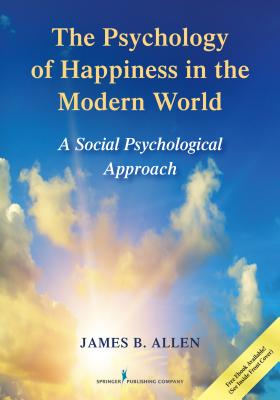This textbook provides a comprehensive introduction to the psychology of happiness, with an emphasis on the social and contextual issues that influence well-being. Chapters on topics such as work, money, materialism, leisure, religion, and spirituality explore the social processes that affect happiness in each domain. Each of these explorations is grounded in the latest research evidence. A chapter on materialism demonstrates how advertising can influence well-being. The chapter on social relationships addresses questions such as whether marriage is necessary for happiness. The religion and spirituality chapter examines the research that suggests that religious individuals are often happier, and will investigate whether this is because of the social relationships that are often coupled with organized religion. And the chapter on work will explore, among other topics, the gendered nature of paid work and domestic work.
Introductory chapters on evolution and personality provide a framework for the discussion of how social processes affect happiness throughout the rest of the book. Evolutionary psychology can explain how humans adapted to become a social species, and evidence indicates that our happiness depends on social connections.











